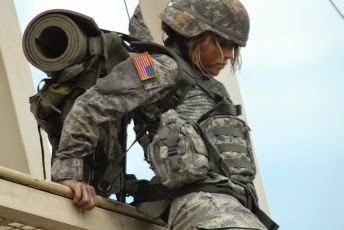When should nation states get all bizzy body and like intervene militarily to stop atrocities in other nation states?
Actually, an ancient quiz.
See, bout a 150 sump years ago - a coalition of the willing intervened in Syria to halt unacceptable behaviour and all the cool modern stuff like mission creep, bizarre theories of crafting more enemies than were truly needed, fragile partnerships and an illegit regime unable to impose Writ of State all were sweetly present
And the quiz is even more potent in bloody Syria au courant:
The idea of a “responsibility to protect” (R2P) was adopted unanimously at the UN’s World Summit in 2005, but subsequent events showed that not all member states interpreted the resolution the same way. Russia has consistently argued that only Security Council resolutions, not General Assembly resolutions, are binding international law. Meanwhile, Russia has vetoed a Security Council resolution on Syria, and, somewhat ironically, Annan has been called back and enlisted in a so-far futile effort to stop the carnage there.
Until last year, many observers regarded R2P as at best a pious hope or a noble failure. But in 2011, as Colonel Muammar el-Qaddafi prepared to exterminate his opponents in Benghazi, the Security Council invoked R2P as the basis for a resolution authorizing NATO to use armed force in Libya. In Great Satan, 44 was careful to wait for resolutions by the Arab League and the Security Council, thereby avoiding the costs to American soft power that 43’s administration suffered when it intervened in Iraq in 2003. But Russia, China, and other countries felt that NATO exploited the resolution to engineer regime change, rather merely protecting citizens in Libya.
In fact, R2P is more about struggles over political legitimacy and soft power than it is about hard international law. Some Western lawyers argue that it entails the responsibility to combat genocide, crimes against humanity, and war crimes under the various conventions of international humanitarian law. But Russia, China, and others are reluctant to provide a legal or political basis for actions such as what occurred in Libya.
There are other reasons why R2P has not been a success in the Syrian case. Drawn from traditional “just war” theory, R2P rests not only on right intentions, but also on the existence of a reasonable prospect of success. Many observers highlight the important physical and military differences between Libya and Syria that would make Syrian no-fly zones or no-drive zones problematic. Some Syrians who oppose President Bashar al-Assad’s regime, pointing to Baghdad in 2005, argue that the one thing worse than a cruel dictator is a sectarian civil war.
Such factors are symptomatic of larger problems with humanitarian interventions. For starters, motives are often mixed (Roosevelt, after all, was referring to Cuba). Moreover, we live in a world of diverse cultures, and we know very little about social engineering and how to build nations. When we cannot be sure how to improve the world, prudence becomes an important virtue, and hubristic visions can pose a grave danger. Foreign policy, like medicine, must be guided by the principle, “First, do no harm.”
Prudence does not mean that nothing can be done in Syria. Other governments can continue to try to convince Russia that its interests are better served by getting rid of the current regime than by permitting the continued radicalization of his opponents. Tougher sanctions can continue to delegitimize the regime, and Turkey might be persuaded to take stronger steps against its neighbor.
Moreover, prudence does not mean that humanitarian interventions will always fail. In some cases, even if motives are mixed, the prospects of success are reasonable, and the misery of a population can be relieved at modest expense. Military interventions in Sierra Leone, Liberia, East Timor, and Bosnia did not solve all problems, but they did improve the lives of the people there. Other interventions – for example, in Somalia – did not.
Recent large-scale interventions in Iraq and Afghanistan, though not primarily humanitarian, have eroded public support for military action. But we should recall Mark Twain’s story about his cat. After sitting on a hot stove, it would never sit on a hot stove again, but neither would it sit on a cold one.
Interventions will continue to occur, though they are now more likely to be shorter, involve smaller-scale forces, and rely on technologies that permit action at greater distance. In an age of cyber warfare and drones, the end of R2P or humanitarian intervention is hardly foretold.
Pic - "Not THAT kinda Invention!!"
Wednesday, June 13, 2012
Subscribe to:
Post Comments (Atom)















0 comments:
Post a Comment